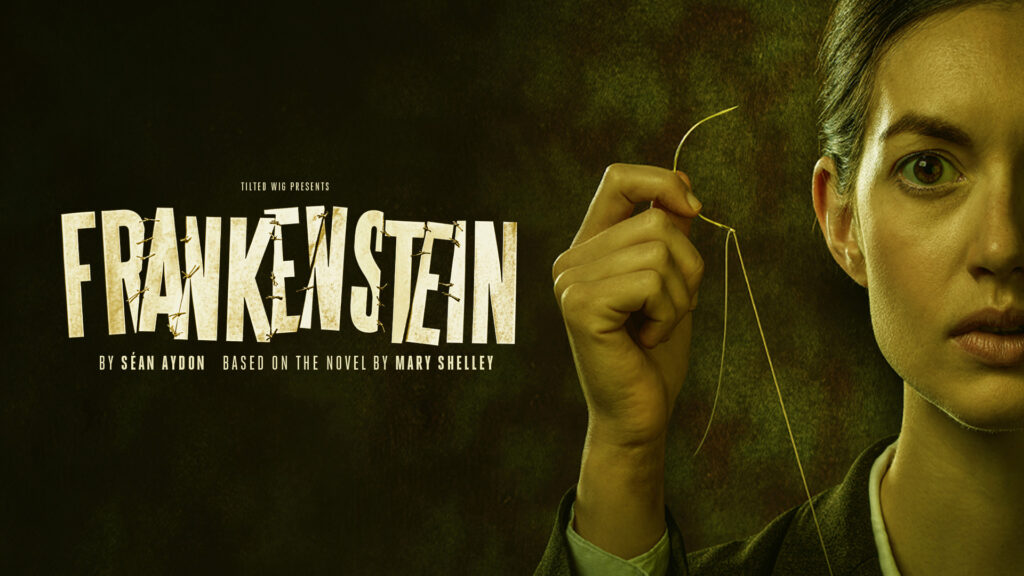
In this female-centric re-imagining of Mary Shelley’s Gothic novel, the gender of the eponymous doctor has been changed, as has her name, from ‘Victor’ to ‘Victoria’. Another big difference is that this version of Frankenstein is set in the 1940s – over a century after the original was written and set. But even with these pretty significant changes, the gruesome bones of the story remain.
A suspenseful, Gothic atmosphere reminiscent of the novel is created on stage by the small cast
The show emphasises the horrific aspects of the story, from the grisly organs visible in jars in the lab to the monster convulsing on the table when he is given life and the raw, visceral screams of the phenomenal actors when tragedy strikes. It is, at times, a harrowing watch and is definitely not for the faint-hearted.
A suspenseful, Gothic atmosphere reminiscent of the novel is created on stage by the small cast, a smoke machine and stark lighting, and the scenes take place in only two locations: the inside of a wood cabin, where Victoria is recounting her tale, and Victoria’s lab, with big fogged-up windows and scientific tools scattered about. Additionally, there is lots of background noise such as the haunting original score, or diegetic sounds of nature, like crashing waves and falling rain. All of these factors work in combination to highlight the sense of isolation from society that both Frankenstein and the monster feel. (Interestingly, the name Frankenstein wasn’t mentioned once in the show – perhaps this is in retaliation to Frankenstein never naming the creature.)
In setting the story alongside World War II, parallels are drawn between Frankenstein’s quest to make a superhuman and ‘improve’ humanity, Nazi eugenics and wanting a master race; and also between society’s treatment and dehumanisation of the monster, and the treatment of Jews during the Holocaust. Questions of morality and accountability on the part of scientists who push the boundaries of scientific discovery are raised, arguably echoing sentiments surrounding the creation of the atomic bomb, which would take place around the same time as this version of the story.
Those who have read the book will notice the more obscure references to quotes and smaller events from the book
One thing is for sure, this is definitely a re-imagining of the novel and not a retelling. Many aspects of the story are changed, with some characters cut out entirely, the introduction of new characters – like Victoria’s lab assistant Francine – and changing relationships between characters – Henry Clerval, Frankenstein’s close friend in the book, is now a love interest. However, the changes made to the characters do help to make the cast diverse and inclusive, something that can’t be said for the cast of characters in the book. Furthermore, the articulate, Hamlet-quoting creature of the show is much more faithful to the creature from the book than the image of Frankenstein’s monster that is held in the public consciousness.
Audience members who go into this show expecting the plot of the book will be sorely disappointed, but those who have read the book will notice the more obscure references to quotes and smaller events from the book. The show still echoes the main themes of the book (ambition, monstrosity, prejudice etc.) and all in all, this is a spectacular homage to Mary Shelley’s macabre tale of Gothic horror and the creation of life.


